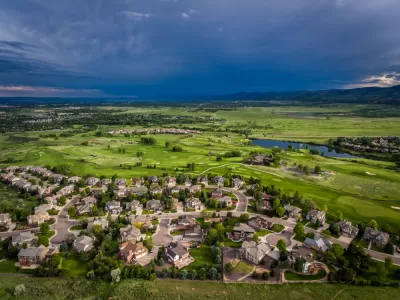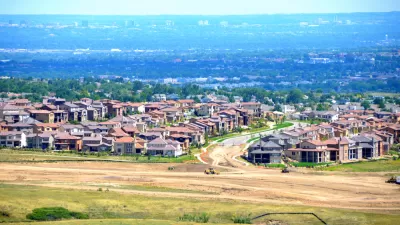Voters in Lakewood, Colorado, have a chance to enact anti-development policies that would place new limits on the number of new housing units that could be built in the city, while also placing new controls on the approvals process.

Lakewood voters will vote in a special election on July 2 to decide the fate of the Strategic Growth Initiative, which would limit annual residential construction in the city to 1 percent of the existing housing stock in the city.
The City Council could have enacted the law without voter approval earlier this week, but opted to send the matter to voters instead. As detailed in an article by John Aguilar, the initiative has a long and litigious history, dating back to June 2017. Cathy Kentner, a Lakewood resident, first proposed the initiative. Jefferson County Republican Party Vice Chairman Steve Dorman has sued several times to slow the progress of the initiative. A charter amendment approved in February was also necessary to get the initiative to this point.
Kentner claims that the initiative is necessary because "developers don’t provide adequate infrastructure to help alleviate congested roadways impacted by new growth. The initiative would require that the city council vote to approve or reject projects of 40 or more housing units instead of letting the city’s development department handle them alone."
FULL STORY: Lakewood’s long-stymied growth control measure going to voters in special July 2 election

Study: Maui’s Plan to Convert Vacation Rentals to Long-Term Housing Could Cause Nearly $1 Billion Economic Loss
The plan would reduce visitor accommodation by 25,% resulting in 1,900 jobs lost.

North Texas Transit Leaders Tout Benefits of TOD for Growing Region
At a summit focused on transit-oriented development, policymakers discussed how North Texas’ expanded light rail system can serve as a tool for economic growth.

Using Old Oil and Gas Wells for Green Energy Storage
Penn State researchers have found that repurposing abandoned oil and gas wells for geothermal-assisted compressed-air energy storage can boost efficiency, reduce environmental risks, and support clean energy and job transitions.

Private Donations Propel Early Restoration of Palisades Playground
Los Angeles has secured over $1.3 million in private funding to restore the Pacific Palisades playground months ahead of schedule, creating a modern, accessible space that supports community healing after recent wildfires.

From Blight to Benefit: Early Results From California’s Equitable Cleanup Program
The Equitable Community Revitalization Grant (ECRG) program is reshaping brownfield redevelopment by prioritizing projects in low-income and environmental justice communities, emphasizing equity, transparency, and community benefits.

Planting Relief: Tackling Las Vegas Heat One Tree at a Time
Nevada Plants, a Las Vegas-based nonprofit, is combating the city’s extreme urban heat by giving away trees to residents in underserved neighborhoods, promoting shade, sustainability, and community health.
Urban Design for Planners 1: Software Tools
This six-course series explores essential urban design concepts using open source software and equips planners with the tools they need to participate fully in the urban design process.
Planning for Universal Design
Learn the tools for implementing Universal Design in planning regulations.
Ascent Environmental
Borough of Carlisle
Institute for Housing and Urban Development Studies (IHS)
City of Grandview
Harvard GSD Executive Education
Toledo-Lucas County Plan Commissions
Salt Lake City
NYU Wagner Graduate School of Public Service




























